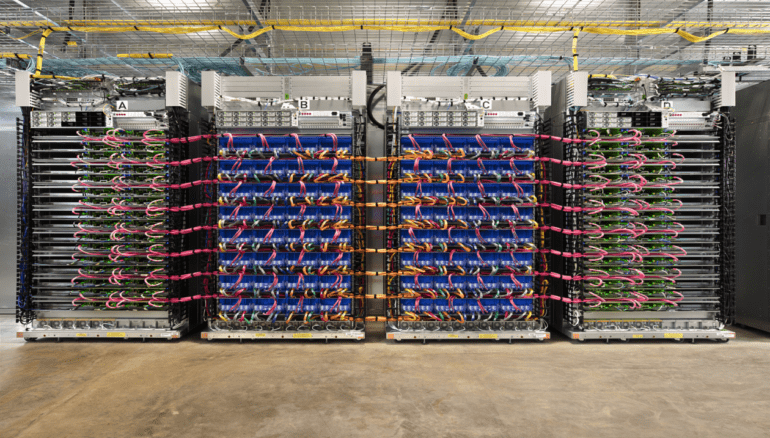TL;DR:
- Google introduces Cloud TPU v5p, a powerful AI accelerator designed for large, complex models.
- TPU v5p boasts remarkable performance improvements over its predecessors, with faster training and embedding capabilities.
- The company also reveals the AI Hypercomputer, an integrated system combining open software, performance-optimized hardware, and machine learning frameworks.
- Google’s commitment to open-source software is evident with support for popular frameworks like JAX, PyTorch, and TensorFlow.
- The AI Hypercomputer introduces innovative operational modes, Flex Start Mode and Calendar Mode.
- Google introduced Gemini, its largest AI model, available in three sizes: Gemini Pro, Gemini Ultra, and Gemini Nano.
Main AI News:
In the grand finale of 2023, Google continues to lead the charge in the realm of generative AI, unveiling a series of groundbreaking advancements. Among these innovations are the latest iteration of its Tensor Processing Units (TPUs), the formidable Cloud TPU v5p, and the introduction of the AI Hypercomputer, both of which promise to reshape the landscape of artificial intelligence.
Amin Vahdat, Google’s Engineering Fellow and Vice President for the Machine Learning, Systems, and Cloud AI team, underlines the significance of these developments, emphasizing, “The growth in [generative] AI models — with a tenfold increase in parameters annually over the past five years — brings heightened requirements for training, tuning, and inference.”
The Cloud TPU v5p stands as a formidable AI accelerator, specifically engineered for the training and deployment of large, complex models. Designed to seamlessly handle models characterized by extended training periods and predominantly matrix computations, these TPUs eschew custom operations within their core training loop, such as TensorFlow or JAX. Notably, each TPU v5p pod harnesses the immense power of 8,960 chips, all interconnected through Google’s highest-bandwidth inter-chip technology.
Building upon the legacy of its predecessors, including the v5e and v4, the TPU v5p boasts twice the FLOPs and four times the scalability in terms of FLOPS per pod compared to the TPU v4. Additionally, it can train LLM models 2.8 times faster and embed dense models 1.9 times faster than its predecessor, the TPU v4.
The unveiling of the AI Hypercomputer ushers in a paradigm shift, offering an integrated system that seamlessly merges open software, performance-optimized hardware, machine learning frameworks, and adaptable consumption models. This holistic approach is poised to enhance productivity and efficiency, surpassing the potential of each component in isolation. Notably, the AI Hypercomputer leverages Google’s cutting-edge Jupiter data center network technology within its performance-optimized hardware.
In a notable departure from tradition, Google extends an olive branch to developers, providing them with open software that offers “extensive support” for popular machine learning frameworks such as JAX, PyTorch, and TensorFlow. This move comes in the wake of Meta and IBM’s collaboration in the AI Alliance, which prominently emphasizes open sourcing–—where Google conspicuously stands apart. Furthermore, the AI Hypercomputer introduces two distinctive operational modes, namely Flex Start Mode and Calendar Mode.
This momentous announcement coincides with the introduction of Gemini, a colossal AI model dubbed by Google as its “largest and most capable.” As part of its rollout, Gemini will grace Bard and the Pixel 8 Pro in three distinct sizes: Gemini Pro, Gemini Ultra, and Gemini Nano. The future of artificial intelligence has never looked more promising, as Google pushes the boundaries of innovation, reshaping the landscape of AI in 2023 and beyond.
Conclusion:
Google’s latest AI hardware and software innovations signify the company’s dedication to advancing the field of artificial intelligence. The introduction of Cloud TPU v5p and the AI Hypercomputer reinforces Google’s position as a leader in AI technology. With a focus on open-source support and improved efficiency, these developments are poised to have a significant impact on the AI market, driving further innovation and adoption in the coming years.

